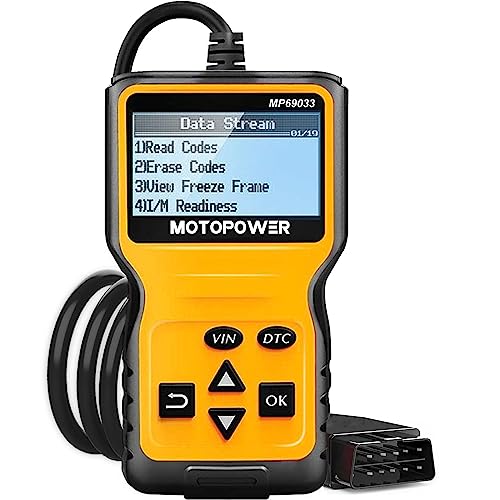Your car's braking system is vital to your safety on the road. But why would your brake light be turning on and off? What could cause this? Let's take a look at some possible culprits.
If your brake light is turning on and off while driving, it could be due to the following:
- Low brake fluid
- Emergency brake is on
- Electrical issues
- Malfunctioning anti-lock braking system (ABS)
- Failed master cylinder sensors
- Worn brake pads
As you can see, there are several reasons as to why your brake light may be flickering. Not to worry; in this article, we will discuss each of these in more detail and offer some solutions. In addition, we will answer other frequently asked questions about vehicle braking systems, so read on!
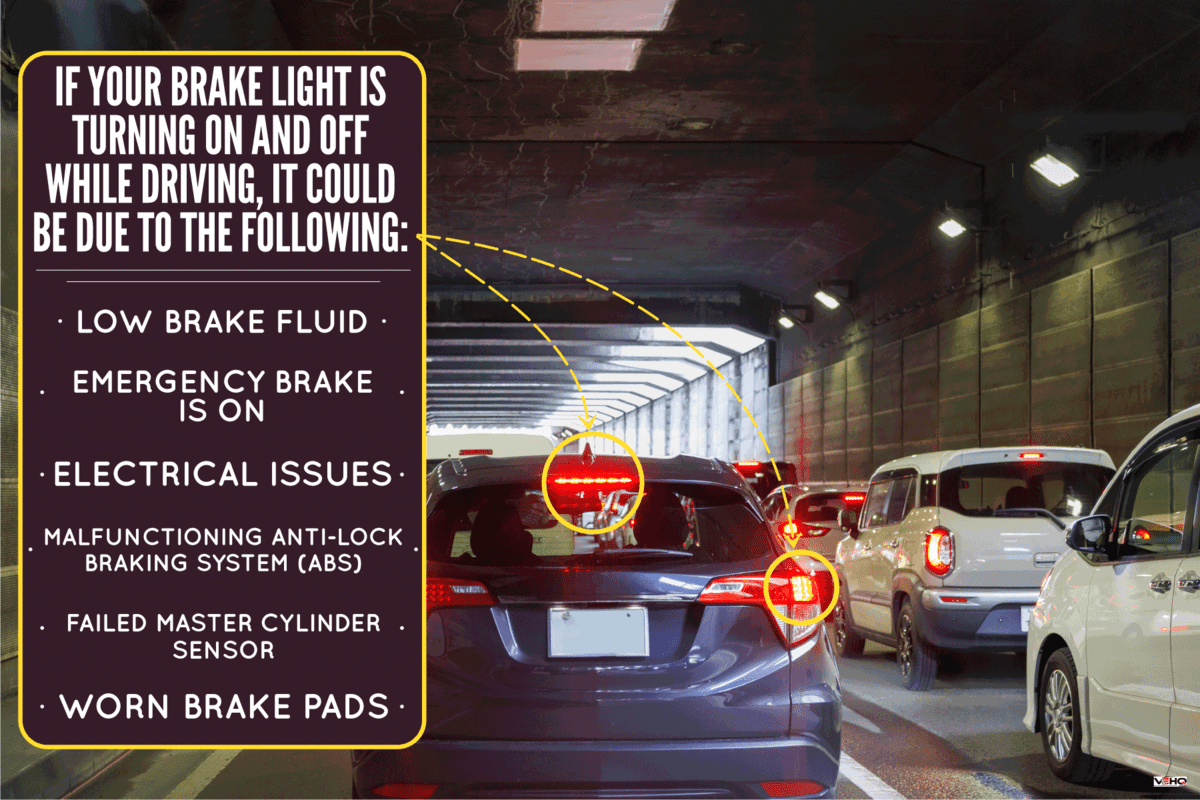
Why Does My Brake Light Come On Randomly?
Your car's brake light indicator on your dash is there to warn you of a potential problem with your vehicle's braking system. Typically, it will come on and stay on if there is an issue.
However, if the light is flickering on and off, it could be due to a number of things. We will discuss some of those possibilities now.
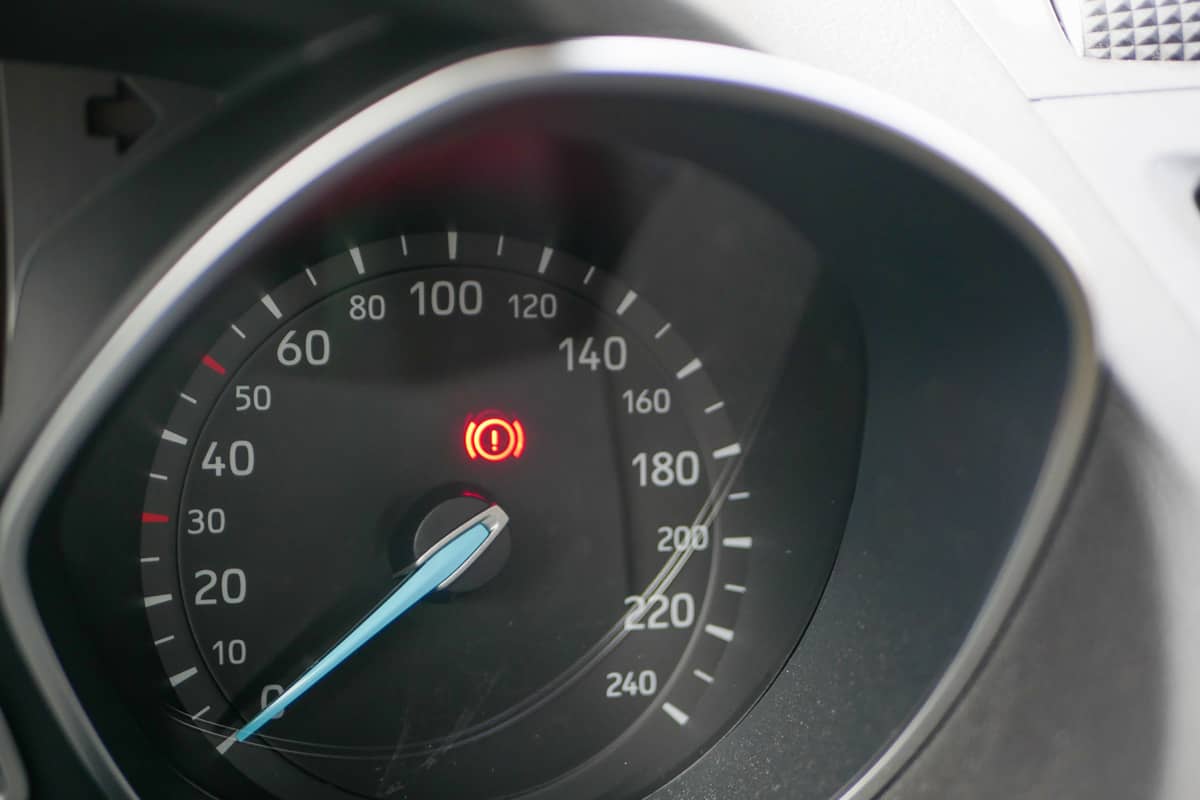
Low Brake Fluid
One potential reason for your brake light coming on and then going off intermittently is that you may have low brake fluid. You can check this by opening the hood of your car and looking at the brake fluid reservoir.
If the level is below the "minimum" line, then you will need to add more fluid. Be sure to use the correct type of brake fluid for your car as well. You can usually find this information in your car's owner's manual or by asking a mechanic.
Emergency Brake Is On
Another potential reason for your brake light to come on and off while driving is that the emergency brake may inadvertently be engaged.
To check if this is the case, simply try disengaging the emergency brake while stopped. If the light goes off, then you know that was the problem. If the light does not go off, then the emergency brake is likely not the issue.
Electrical Issues
If your car's brake light is coming on and going off while driving, it could be due to an electrical issue. This could be a problem with a fuse, wiring, or even a sensor.
If you suspect an electrical issue is to blame, the best course of action is to take your car to a mechanic or dealership for diagnosis and repair.
Malfunctioning Anti-Lock Braking System (ABS)
Another potential reason for an intermittent brake light is a malfunctioning ABS. The ABS is what helps keep your car from skidding or sliding when braking on slippery surfaces.
If the ABS is not working properly, it can cause the brake light to come on. In some cases, the ABS light itself will also come on. The ABS is another culprit that is best left to a mechanic or dealership to diagnose and repair.
Failed Master Cylinder Sensors
The master cylinder is what provides the hydraulic pressure for your car's brakes. If there is a problem with the sensors in the master cylinder, it can cause the brake light to come on and off intermittently.
It could be a sensor within the parking brake or the sensor that measures the brake fluid. Either way, a mechanic will need to diagnose and repair the issue. However, you may be able to scan the codes yourself with an OBD-II reader.
Click here to see this automotive code reader on Amazon.
Worn Brake Pads
Finally, another potential reason for your brake light to come on and off while driving is that you may have worn brake pads. This is a more common issue and one that is relatively easy to check yourself.
Simply look at your brake pads through the spaces in your wheels. If they look worn down, then they need to be replaced. You can also listen for a squealing noise when braking. This is often an indication that your brake pads are worn and need to be replaced.
As you can see, some of these issues can be checked yourself. However, braking issues aren't something that should be taken lightly. If you are unsure of the problem or if you can't fix it yourself, be sure to take your car to a mechanic or dealership for diagnosis and repair.
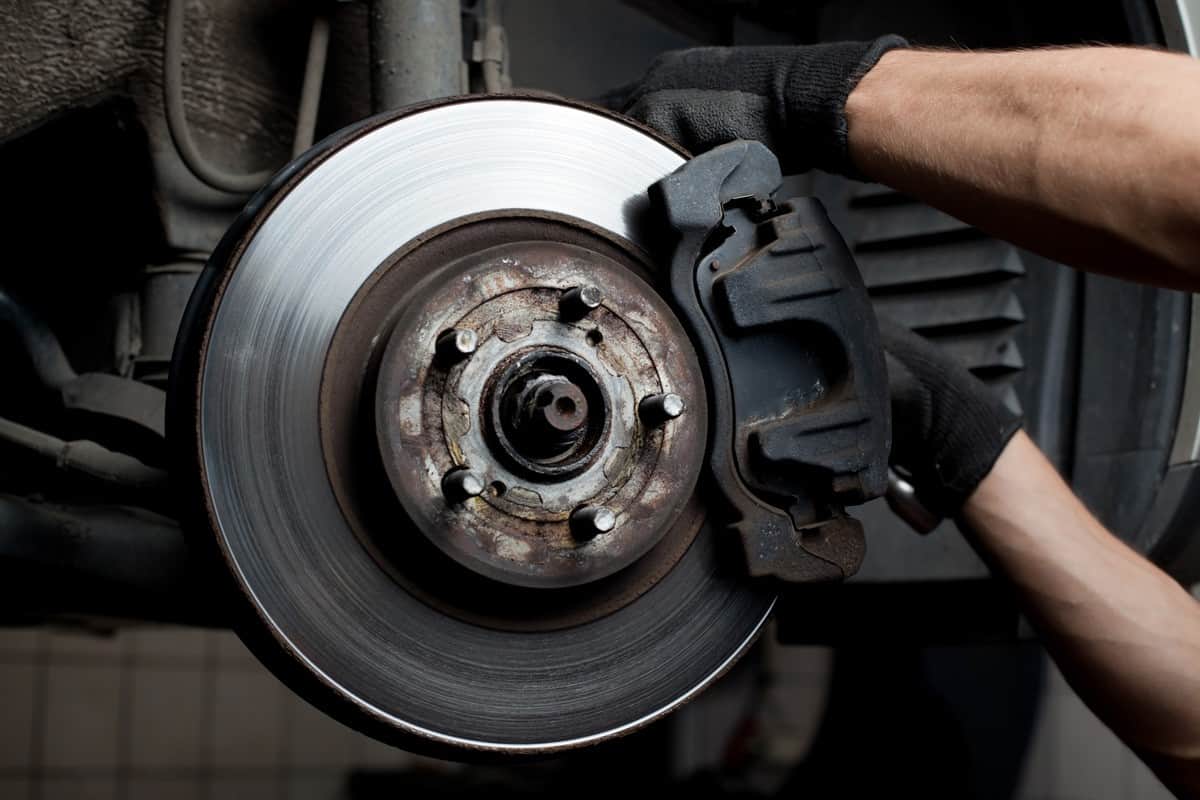
What Should You Do When The Brake Warning Light Comes On?
If you are driving and your brake warning light comes on, then don't panic. Nonetheless, you need to pull over to a safe spot as soon as possible.
If you can, try to diagnose the problem yourself. If you can't figure it out or if you don't feel comfortable working on your car, then call a tow truck and have your car taken to a mechanic or dealership.
The bottom line is that you shouldn't ignore a brake warning light. While it may not be a serious problem, it could be an indication of something that needs to be fixed before it leads to more serious issues.
The last thing you want is for your brake system to fail while you are driving. So, if in doubt, err on the side of caution and get it checked out by a professional.
It is also worth calling roadside assistance if you are a member. They may be able to help you diagnose the problem over the phone or even send someone out to help you.
Just remember—when in doubt, don't hesitate to get help. Your safety is always worth more than the cost of a tow truck or a mechanic's bill.
How Often Does Brake Fluid Need To Be Replaced?
Depending on your vehicle and how often you drive, brake fluid should be replaced in two to three years. However, it could be sooner if you notice any issues with your brakes.
Brake fluid is what helps keep your brakes functioning properly. Over time, it can become dirty or contaminated, which can lead to issues with your brakes.
In addition, your best bet is to check your manufacturer's recommendations. They will have specific information on when brake fluid needs to be replaced for your particular vehicle.
Brake fluid is relatively cheap and easy to replace. It also doesn't hurt to have your brake fluid checked and topped off at every service. This way, you can be sure that your brakes are always in good working condition.
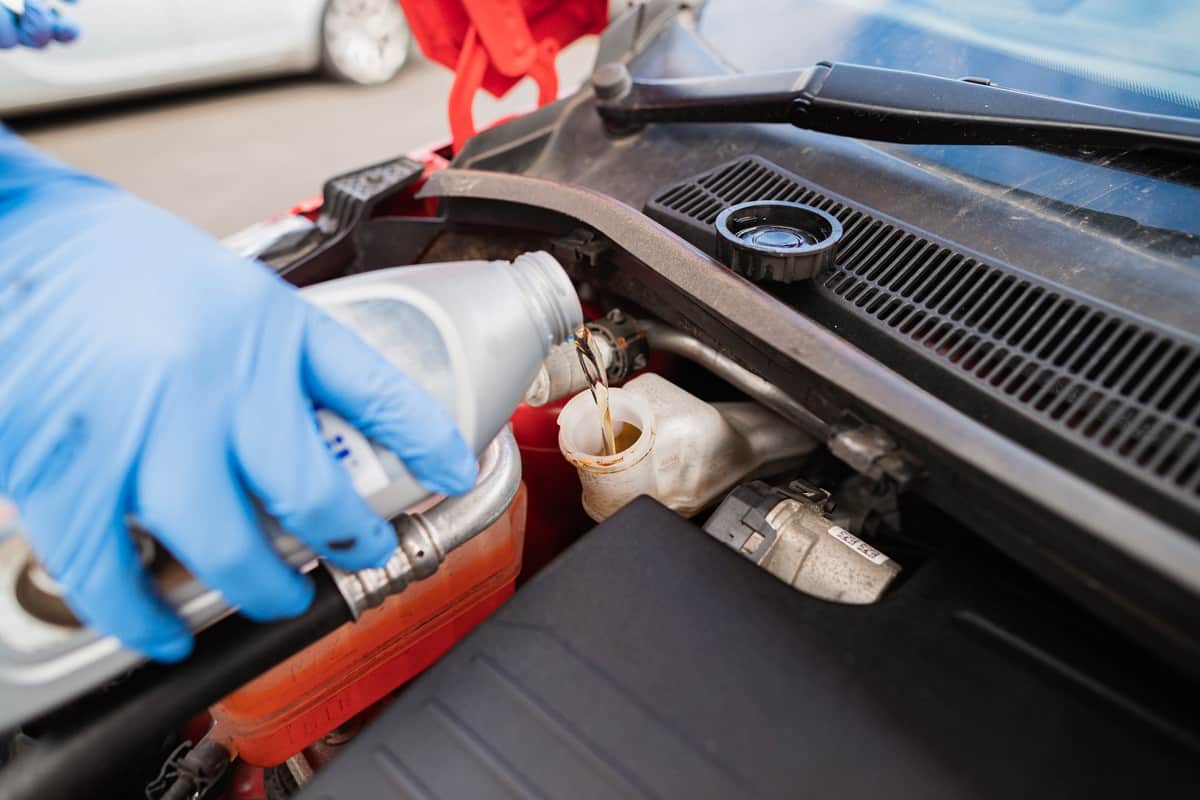
How Long Do Brake Pads Last?
Typically, you can expect brake pads to last 30,000-70,000 miles. Again, this will depend on your driving habits and how often you drive.
To help your brake pads last longer, avoid riding your brakes and coming to sudden stops. If you do this often, then your brake pads will wear down much faster.
It's also important to have your brakes checked regularly. This way, you can catch any issues early on and avoid more serious problems down the road.
As we mentioned earlier, if you hear a squealing or screeching noise when you brake, then this is an indication that your brake pads need to be replaced.
If you notice any issues with your brakes, be sure to take your car to a mechanic or dealership for diagnosis and repair.
What Happens If You Don't Replace Your Brake Pads?
If you don't replace your brake pads when they need it, then you are putting yourself at risk. Worn-out brake pads can lead to more serious problems, such as brake failure. Brake failure is extremely dangerous and can cause accidents. In some cases, it can even be fatal.
You could also be looking at bigger repairs. Worn brake pads will eventually wear down the calipers and rotors. This will be much more expensive to fix than just replacing the brake pads.
How Much Are Brake Pads?
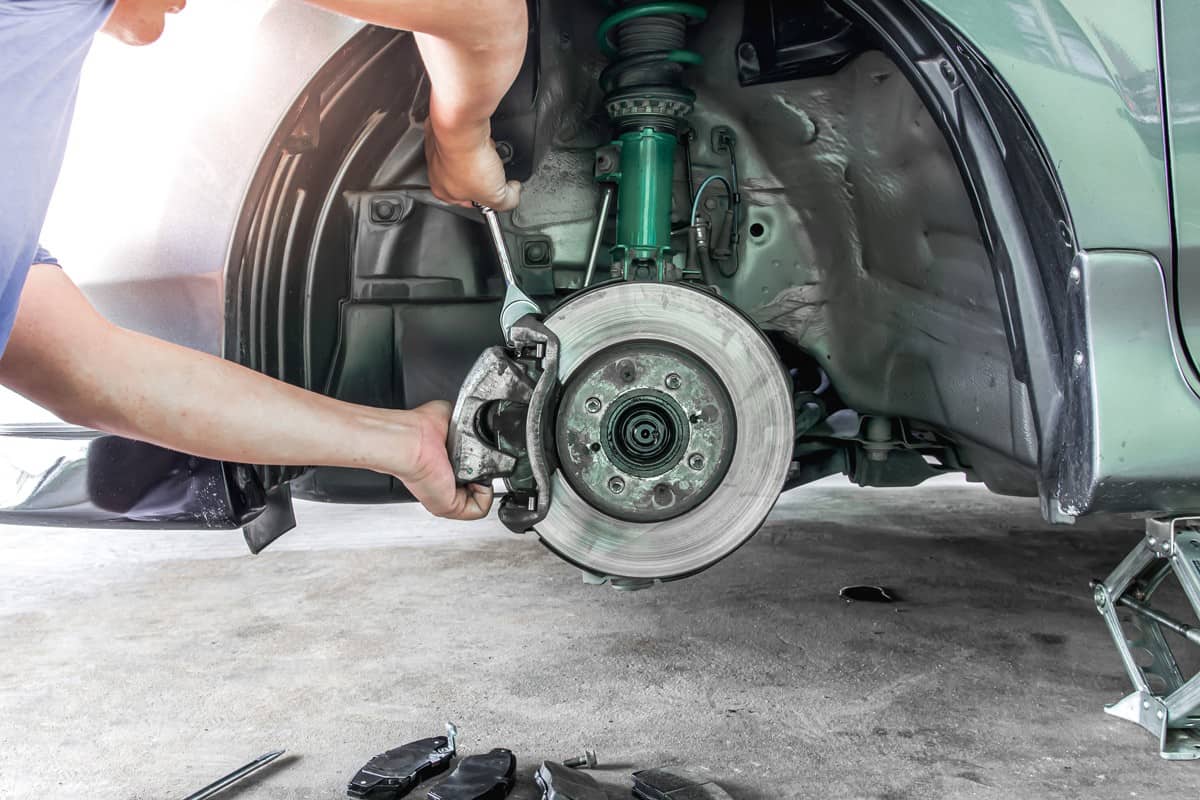
Depending on your vehicle, brake pads can cost anywhere from $100-300 for a set of four. Typically, a mechanic will recommend doing all four at once.
However, this will also depend on the severity of the wear and tear. If only two brake pads need to be replaced, then you may be able to get away with just replacing those.
It's always best to consult with a mechanic or dealership to find out what is best for your particular vehicle. They will tell you the best course of action and give you an estimate of the cost.
Doing it yourself is possible, but we wouldn't recommend it unless you are an experienced mechanic. Replacing brake pads is a relatively easy job, so it can be done yourself if you have the know-how.
Final Thoughts
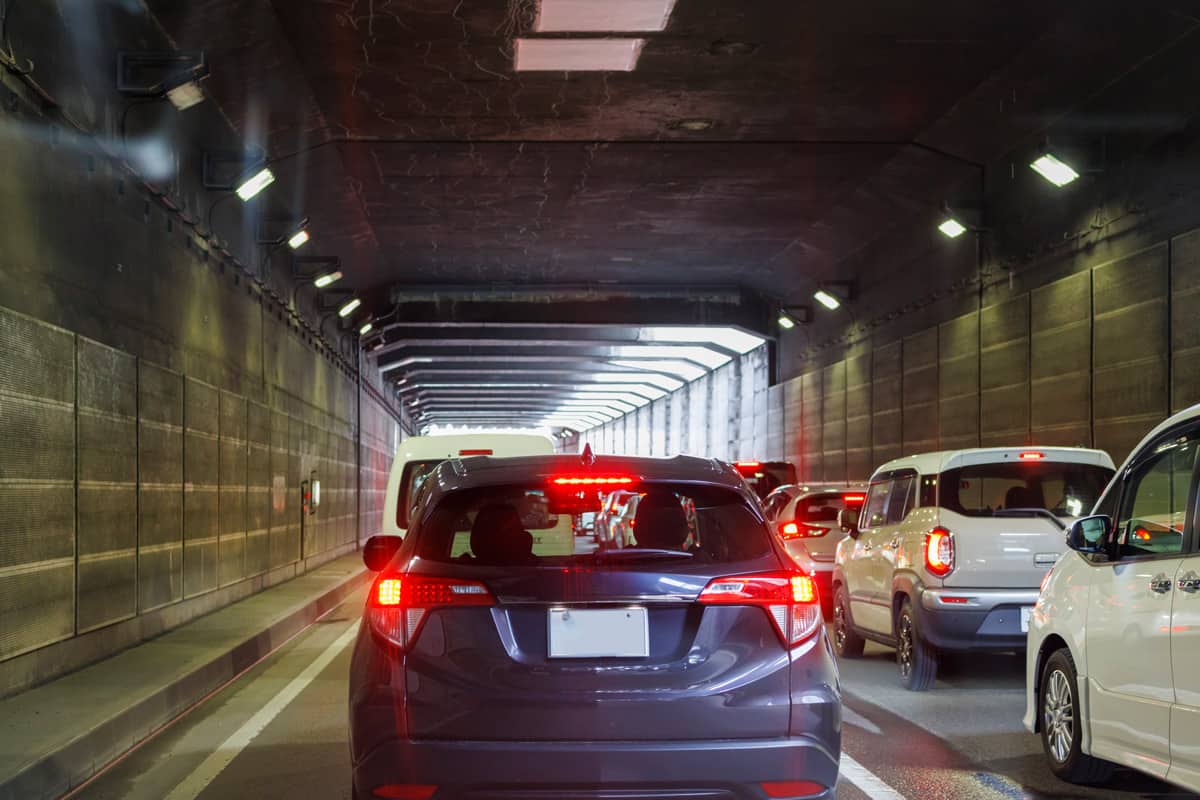
Overall, no matter the culprit of your brake light coming on, it shouldn't be ignored. For your safety and the safety of others on the road, it's always best to get your brakes checked out as soon as possible.
Made it to the end? Here are other articles you might find helpful:
Emergency Brake Not Working After Brake Job

